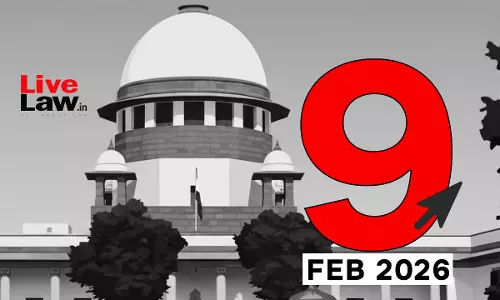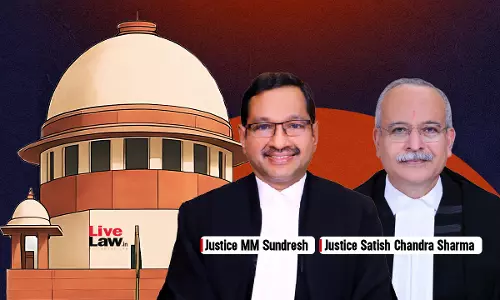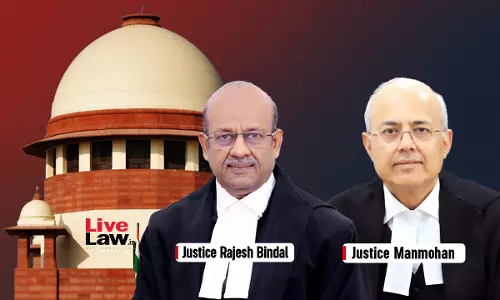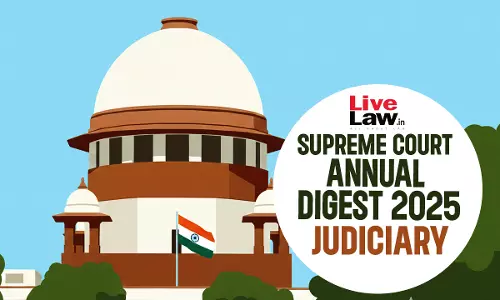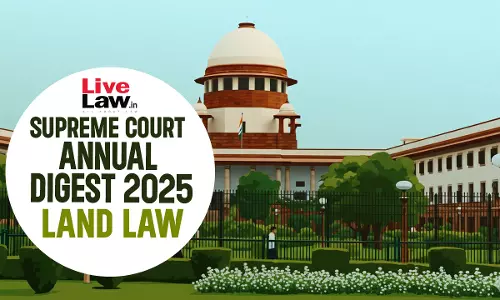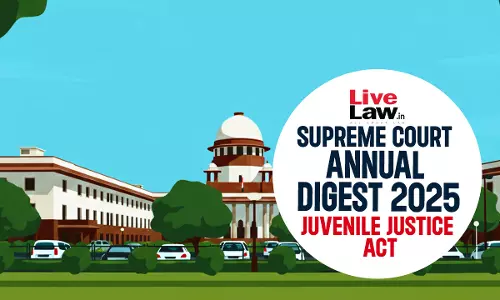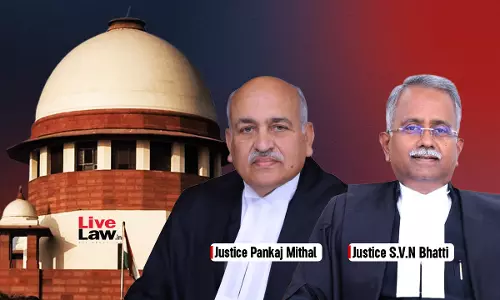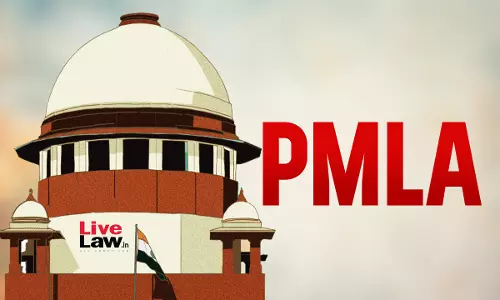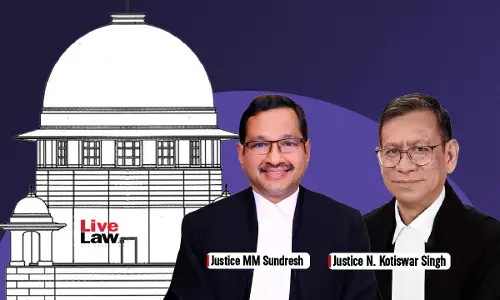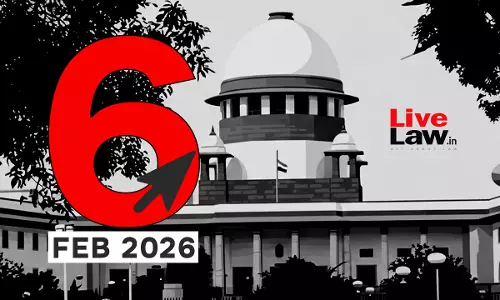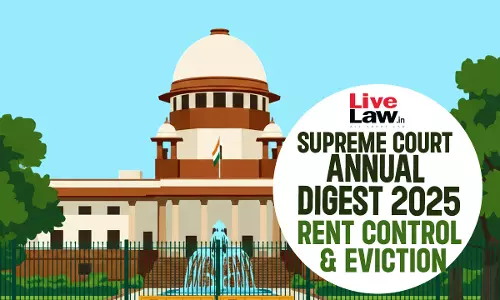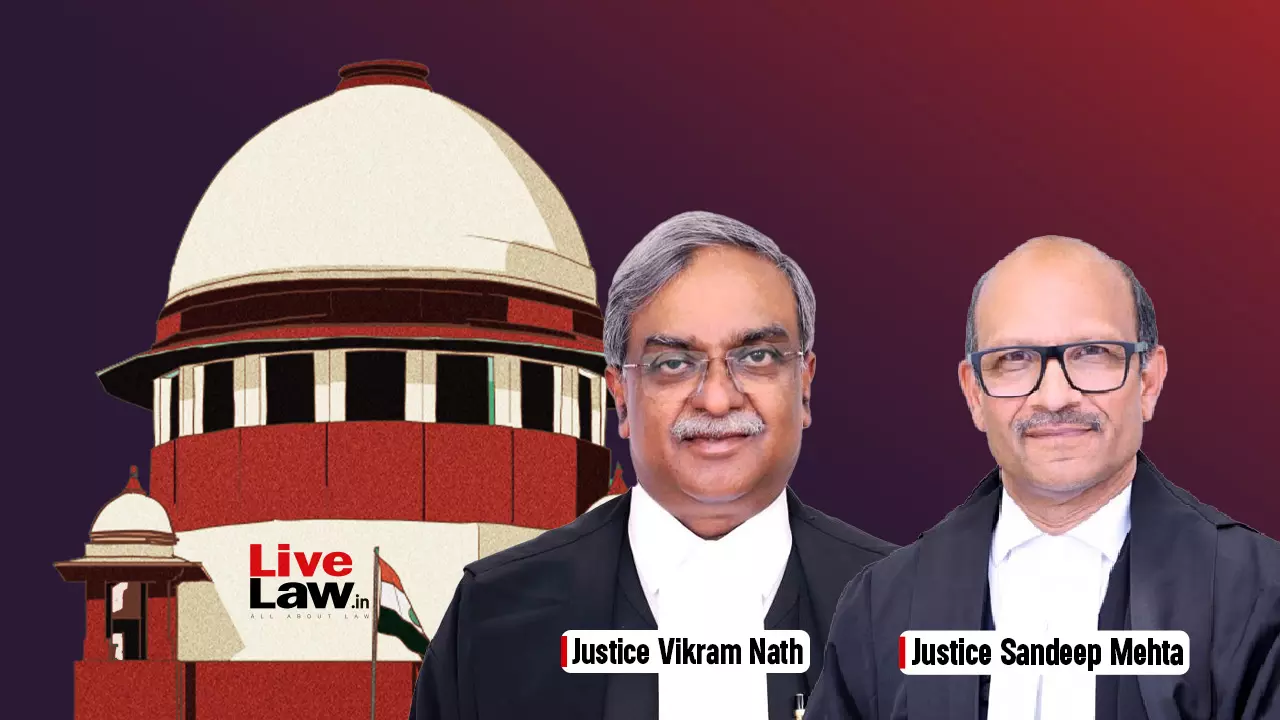Supreme court
Supreme Court Daily Round-Up : February 9, 2026
Links to today's reports :Lawyer Alleges Attack By Goons In Tis Hazari Court Before Judge; CJI Assures Action, 'Won't Accept Gunda Raj''Balanced Order' : Supreme Court Affirms Madras HC Order Limiting Muslims' Worship At Thirupparankundram Hills In Tamil NaduSupreme Court Refuses To Cancel Bail Of Cardiologist Accused Of Performing Forced Angioplasties To Claim Govt FundsKuldeep Sengar's...
Delay In Filing Appeals Under S. 74 Of 2013 Land Acquisition Act Can Be Condoned: Supreme Court
In a significant development, the Supreme Court on Monday (February 9) held that a delay in filing an appeal under Section 74 of the Right to Fair Compensation and Transparency in Land Acquisition, Rehabilitation and Resettlement Act, 2013 (2013 Act) can be condoned under Section 5 of the Limitation Act, 1963. “Section 74 of the 2013 Act does not bar the application of Section 5 of the 1963 Act.”, the court held. A bench of Justices MM Sundresh and SC Sharma heard the batch of pleas where the...
Supreme Court Annual Digest 2025: Judiciary
Judiciary - Supreme Court Annual Digest 2025 3-year minimum practice - The Supreme Court reinstated a minimum three-year practice requirement for advocates applying for Civil Judge (Junior Division) posts, reversing the earlier relaxation from the 2002 All India Judges Association case. The decision revealed a lack of consensus among High Courts and States, with most supporting...
Supreme Court Annual Digest 2025: Land Law
Land Law - Supreme Court Annual Digest 2025 Acquisition of Land for Industrial Purposes Act, 1997 (Tamil Nadu) - Sections 7(2), 7(4) and 12 - Land Acquisition - Concluded Contract - Payment of Interest – Held, a concluded contract voluntarily entered into between the Government and the landowner/person interested for the determination of compensation under Section 7(2) or...
Supreme Court Annual Digest 2025: Juvenile Justice Act
Criminal Law – Bail - Juvenile Justice - Sexual Offences - Sex Education - Supreme Court reiterated its direction to the State of Uttar Pradesh to file an additional affidavit informing the Court on how sex education is provided as a part of the curriculum in higher secondary schools (Classes IX to XII) so that young adolescents are made aware of the hormonal changes that come...
Photocopy Of Document No Evidence Unless Conditions To Produce Secondary Evidence Proved : Supreme Court
The Supreme Court has set aside the sale undertaken on the strength of a photocopied Power of Attorney, noting that a photocopy of a document, being secondary evidence, is not evidence unless it falls under the conditions set out in Section 65 of the Evidence Act.Section 65 of the Evidence Act permits the production of secondary evidence (copies, oral accounts) when the original document...
Quasi-Judicial Authorities Lack Review Power Unless Statutorily Empowered : Supreme Court
The Supreme Court on Friday (February 6) held that the quasi-judicial authorities aren't empowered to exercise review jurisdiction unless statutorily empowered to do so. A bench comprising Justices M.M. Sundresh and N. Kotiswar Singh overturned the Calcutta High Court's decision that had sustained the Revenue Officer's exercise of review jurisdiction. The Court held that the vesting of...
Supreme Court Daily Round-Up : February 6, 2026
Links to today's reports :Supreme Court To Examine If Pupil -Teacher Ratio Fixed In Maharashtra Is Contrary To RTE ActTrial Courts Must Record Offer Of Free Legal Aid To Accused Before Examination Of Witnesses : Supreme CourtState Govt Employees Can't Claim Dearness Allowance Twice A Year Unless Rules Permit : Supreme CourtSupreme Court Rejects TN Cadre IPS Officer's Claim For Rajasthan...
Supreme Court Annual Digest 2025: Rent Control & Eviction
Rent Control & Eviction - Supreme Court Annual Digest 2025 Appellate Authority's Error - The Appellate Authority's reversal of the Prescribed Authority's findings was unsustainable, as it failed to provide convincing reasons to dislodge the evidence-based conclusion of bona fide need. The assumption that the landlord had substantial business interests was not supported by...
Statutory Authorities Can Intervene If Housing Society Delays Membership Decisions : Supreme Court
The Supreme Court has observed that the statutory authority can step into the affairs of the co-operative housing societies' matters when the society refuses to decide or keeps the matter pending for a long time. A bench of Justices Vikram Nath and Sandeep Mehta heard the matter that relates to the delay in granting of the membership to the flat owners in one Malboro House Co-operative...



